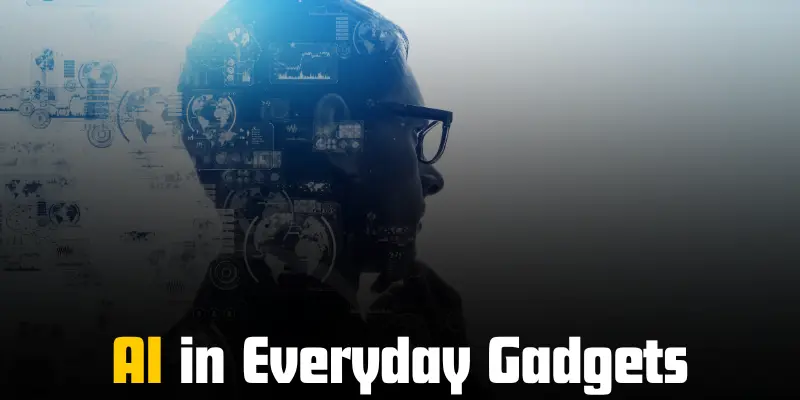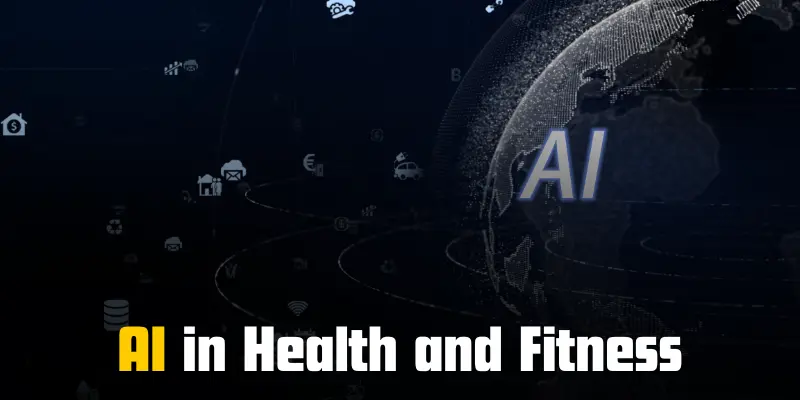How AI Is Changing Our Daily Life!
Published: 5 Feb 2025
AI is no longer just a futuristic concept – it’s already embedded in our daily lives. From voice assistants like Siri to personalized recommendations on Netflix, AI is working behind the scenes to make tasks easier and faster. In fact, many of us use AI every day without even realizing it. Whether it’s driving your car with GPS, shopping online, or even managing your calendar, AI is quietly enhancing the way we live.
Introduction
Artificial Intelligence, or AI, is a type of technology that allows machines and computers to do tasks that would normally require human thinking. These tasks include things like learning new things, solving problems, and understanding language. Think of it like teaching a computer how to think for itself, so it can help us in many different ways.
For example, when you ask a voice assistant like Siri or Google Assistant to play your favorite song or set a reminder, that’s AI at work. It’s using its “intelligence” to understand what you said and take action based on that.
You might not realize it, but AI is already a big part of our daily routines. It’s everywhere AI in daily life! Whether you’re using a smartphone, watching movies on Netflix, or even getting directions from Google Maps, AI is helping make things easier and more efficient for you.
In fact, many of the tools and apps we use every day wouldn’t be as smart, helpful, or efficient without AI. It’s like having a little helper that works behind the scenes, making your tasks simpler and faster. Even though it’s often invisible, AI has a huge impact on how we live and work.
AI in Everyday Gadgets

Smartphones and Virtual Assistants
- Examples: Siri, Google Assistant, Alexa
- How AI Helps:
- AI enables these virtual assistants to understand and respond to your voice commands. By processing your speech and using natural language processing (NLP), they can carry out tasks like setting reminders, answering questions, and even controlling other smart devices. Over time, they learn your preferences, making their responses more accurate and personalized.
- For example, if you often ask Alexa to play a specific playlist in the morning, it will start offering that playlist automatically without needing to be told.
Smart Home Devices
- Examples: Smart thermostats (Nest), Smart lighting (Philips Hue)
- How AI Improves Comfort:
- Learning Your Schedule: Smart thermostats like Nest use AI to learn your daily routines. If you typically lower the temperature at night and raise it in the morning, the device adjusts itself to fit those patterns without you needing to touch a button.
- Energy Efficiency: These devices can also save energy. By detecting when you’re home or away, they adjust settings accordingly, ensuring you’re not wasting energy when you’re not using it.
- Customizing Your Environment: Smart lighting like Philips Hue can learn your preferences for brightness and color temperature. Over time, it adapts to make your home more comfortable based on your behavior—whether it’s bright, white light during work hours or warm, dim lighting in the evening.
AI in Transportation
Navigation Apps
- Examples: Google Maps, Waze
- How AI Helps:
- Finding the Fastest Routes: AI in navigation apps analyzes traffic data in real-time to find the quickest routes, even suggesting alternative paths if traffic builds up.
- Avoiding Traffic: Apps like Waze use crowd-sourced data from other drivers to identify accidents, road closures, and delays. The AI processes this data to reroute you and help avoid congestion.
- Real-Time Updates: Google Maps and Waze constantly update your route based on traffic changes, accidents, or new road conditions. If a faster route opens up, the app automatically redirects you, keeping your journey as efficient as possible.
Self-Driving Cars
- Example: Tesla’s Autopilot
- How AI is Used:
- AI in Self-Driving Technology: Self-driving cars use AI to make decisions that a human driver would. This includes navigating roads, avoiding obstacles, and reacting to changes in the environment (like a pedestrian crossing or a car suddenly braking).
- Sensors and Data: Self-driving cars are equipped with sensors, cameras, and radar to collect data from their surroundings. The AI processes this data in real-time, allowing the car to “see” and understand what’s happening around it.
- Development Stage: While self-driving cars are already on the road, like Tesla’s Autopilot, the technology is still developing. There are many safety, regulatory, and technical hurdles to overcome before fully autonomous cars are widely available, but they are showing great potential in reshaping transportation.
AI in Shopping
Personalized Recommendations
- Examples: Amazon, Netflix, YouTube
- How AI Helps:
- Suggesting Products, Movies, or Videos: AI in shopping apps and streaming platforms analyzes your past behavior to recommend products, movies, or videos you might like. For example, if you’ve purchased running shoes on Amazon, the AI might suggest other sportswear or accessories based on your preferences.
- Learning Your Taste: As you use the app or service more, AI gets better at understanding your preferences. On Netflix, for instance, it tracks what you watch and suggests shows or movies that are similar. The more you engage, the more accurate the recommendations become.
AI Chatbots
- Examples: Customer service chatbots on websites
- How AI Helps:
- Answering Questions: Many companies now use AI-powered chatbots to help customers instantly. If you visit a website, you may encounter a chatbot that answers common questions like store hours, shipping details, or product features.
- Solving Issues Quickly: AI chatbots can also assist with solving problems. For example, if you have an issue with an order, the chatbot might help you track your package or even guide you through returning a product—without waiting for human support.
- 24/7 Support: One of the benefits of AI chatbots is that they’re always available. No matter the time of day, they can provide fast, accurate responses, improving your shopping experience and making customer service more efficient.
AI in Health and Fitness

Fitness Trackers and Apps
- Examples: Fitbit, Apple Watch, MyFitnessPal
- How AI Helps:
- Tracking Activity: AI in fitness trackers like Fitbit or Apple Watch monitors your daily steps, exercise, and heart rate. It helps you set and reach fitness goals by analyzing your progress and offering suggestions to improve.
- Monitoring Sleep: AI can analyze your sleep patterns and suggest ways to get better rest. For example, your Apple Watch tracks the quality of your sleep and provides tips to improve it, like adjusting your bedtime routine.
- Diet Insights: Apps like MyFitnessPal use AI to track your diet and suggest healthier food choices. If you log your meals, the AI can give you personalized recommendations based on your goals, like losing weight or building muscle.
Medical AI
- Examples: AI in diagnostic tools (e.g., detecting diseases from X-rays)
- How AI Helps:
- Faster Diagnoses: AI can assist doctors by analyzing medical images, like X-rays, faster and more accurately. AI systems can spot patterns that might be missed by the human eye, helping doctors diagnose conditions like pneumonia or cancer early.
- Accuracy and Efficiency: By using AI, doctors can get more precise results in a shorter amount of time. For example, AI tools like Google’s DeepMind have been used to detect eye diseases from scans with remarkable accuracy, sometimes even better than human doctors.
- Supporting Treatment Plans: AI also helps doctors come up with personalized treatment plans based on the patient’s health data, improving outcomes and providing more effective care.
AI in Entertainment
Music and Video Streaming
- Examples: Spotify, Netflix
- How AI Helps:
- Personalized Playlists and Recommendations: AI in music and video streaming platforms like Spotify and Netflix analyzes your viewing or listening history to recommend content that matches your tastes. For example, if you frequently listen to jazz on Spotify, the AI will suggest similar jazz artists and songs to help you discover new music.
- Adapting to Your Preferences: Over time, AI learns what you like (and don’t like), improving its suggestions. If you skip a particular type of movie on Netflix, it will take that into account and offer fewer of those in the future.
- Creating Playlists: Spotify’s AI can also create personalized playlists like “Discover Weekly” based on your listening habits and trends it finds from similar users.
AI in Gaming
- Examples: AI-driven opponents in video games (e.g., FIFA, chess)
- How AI Helps:
- Challenging Opponents: AI is used in video games to create opponents that are challenging but fair. For example, in sports games like FIFA, the AI adapts to your playing style, making the game more competitive. If you’re good at one aspect, the AI might change its strategy to focus on a weakness, keeping the game interesting and engaging.
- Learning Your Skills: In games like chess, AI opponents can adjust their strategies based on your level of play. If you’re a beginner, they might make easier moves, but as you get better, they become more advanced, providing you with a continuously fun challenge.
- Dynamic Storylines: Some games even use AI to create storylines that change depending on your actions, making each playthrough unique. This allows players to experience fresh content every time they play, adding replay value.
AI in Work and Productivity
AI in Email and Calendar Management
- Examples: Google’s Smart Compose, Outlook’s Focused Inbox
- How AI Helps:
- Writing Emails Faster: Google’s Smart Compose uses AI to predict and suggest phrases or sentences as you type your email. This helps you write emails more quickly by reducing the time spent thinking about what to say next. If you start typing “I hope you’re doing well,” it might suggest the rest of the sentence, saving you time.
- Organizing Your Inbox: AI in Outlook’s Focused Inbox automatically sorts important emails from less important ones. It analyzes your past behavior and uses this information to prioritize emails from key contacts or urgent matters, so you don’t have to dig through your inbox to find what matters most.
- Managing Your Calendar: Google Calendar’s AI helps you schedule meetings and events by suggesting available times based on your current calendar. It can even automatically detect meeting locations and add them to your calendar, making scheduling smoother and more efficient.
AI for Task Automation
- Examples: Tools like Zapier, IFTTT
- How AI Helps:
- Automating Repetitive Tasks: Tools like Zapier and IFTTT (If This, Then That) allow you to set up automatic workflows that link apps together. For instance, you could set a “Zap” that automatically saves email attachments to your Google Drive, or a “recipe” in IFTTT that turns on your smart lights when you start a video call. This removes the need for manual work and helps you stay focused on more important tasks.
- Saving Time: By automating routine tasks, AI helps free up time for more creative or complex work. Instead of manually moving files, copying data, or sending the same response to multiple emails, you can let AI tools handle these tasks, speeding up your workflow and improving overall productivity.
- Customizing Your Workflow: You can set up automation tailored to your needs, whether that’s syncing data between apps, sending reminders, or creating follow-up actions after meetings. These small AI-driven efficiencies can add up, making your day more organized and less stressful.
Conclusion
So guys, in this article, we’ve covered AI in daily life in detail. From smart home gadgets to AI in entertainment and healthcare, the impact of AI is clear and growing. I highly recommend you start small—try using an AI-powered recommendation service or a virtual assistant to get a taste of how AI can improve your daily tasks. Take action now and begin exploring the world of AI—it’s easier than you think, and the benefits are huge!
Frequently Asked Questions (FAQs)
AI stands for Artificial Intelligence, which is technology that allows machines to perform tasks that typically require human thinking, such as learning or problem-solving. It works by processing large amounts of data and using algorithms to recognize patterns and make decisions. Over time, AI gets better at these tasks by learning from experience.
Yes, AI is generally safe to use, especially in common applications like virtual assistants and fitness trackers. However, it’s important to keep your privacy settings in mind, as AI can collect personal data. Always make sure you’re using trusted apps and services to ensure your data is secure.
AI can track your activities, monitor your sleep, and give you personalized advice to improve your health. Fitness trackers like Fitbit or the Apple Watch use AI to analyze your exercise and diet habits. This helps you stay on track with your fitness goals and make smarter health choices.
AI can automate some repetitive tasks, like sorting emails or analyzing data, but it’s unlikely to replace human creativity and problem-solving abilities. Instead, AI is more likely to work alongside humans to make our jobs easier and more efficient. In many fields, it’s seen as a tool to help people do their jobs better.
AI uses data about your past behavior to understand your preferences and suggest things you might like. For example, Netflix uses your viewing history to recommend movies or shows you’ll likely enjoy. The more you use AI-powered apps, the better they get at tailoring recommendations to fit your tastes.
AI helps with navigation apps like Google Maps and Waze by analyzing traffic data in real-time to find the fastest routes. It can also be found in self-driving cars, where it helps the car “see” and react to its surroundings. While self-driving cars are still developing, AI is already improving how we navigate roads.
AI can be very accurate, but it’s not perfect. It depends on the data it’s trained on and how well the algorithms are designed. Sometimes, AI might make mistakes or fail to understand certain situations, especially when it encounters unfamiliar data.
AI can help you automate repetitive tasks, like organizing emails or scheduling meetings. Tools like Google’s Smart Compose or Outlook’s Focused Inbox use AI to speed up your daily tasks. This allows you to spend more time focusing on what matters most, rather than getting bogged down by small tasks.

- Be Respectful
- Stay Relevant
- Stay Positive
- True Feedback
- Encourage Discussion
- Avoid Spamming
- No Fake News
- Don't Copy-Paste
- No Personal Attacks

- Be Respectful
- Stay Relevant
- Stay Positive
- True Feedback
- Encourage Discussion
- Avoid Spamming
- No Fake News
- Don't Copy-Paste
- No Personal Attacks



